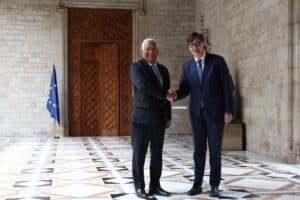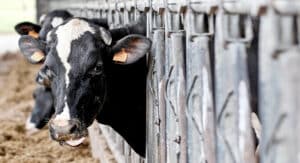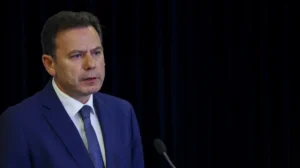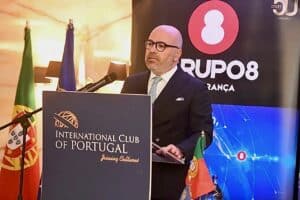Former fuel entity boss takes command of nation’s energy hub
Overshadowed by Friday’s tragic helicopter accident in Lamego was news that Portugal’s AD government had replaced yet another ‘head honcho’ appointed by the Socialist administration that ran the country for the last eight years. On its own, it seemed like a fairly innocuous soundbite – but it was, in fact, a prime move in a strategic transformation of the ‘fat state’…
First of all, the ‘fat state’. What is it? Small in size and population as Portugal is, it has no less than 645 public entities, 172 public companies, 223 institutes, foundations and autonomous funds, 134 commissions and technical units, 70 advisory bodies and mission teams and 46 directorates-general.
All these have dozens if not hundreds and thousands of employees, managers, directors etc. who, in some cases, can be seen to be performing very similar tasks.
For example, taking just the energy sector: Portugal has (although not for much longer) the DGEG – general directorate of energy and geology; LNEG (the national laboratory of energy and geology), ENSE (the national entity for the energy sector), ADENE (the agency for energy) and EDM (the entity for the development of mining).
All of these are involved in assessing projects/giving expert opinions, etc.
It wasn’t so long ago that the sector also had the ENMC (the national entity for the fuel sector). People with good memories might remember this used to be run by Paulo Carmona, a respected business manager who most recently espoused the policies of Iniciativa Liberal – but who less than 10 years ago was perfectly comfortable giving an untried fuel company licence to drill for oil and gas practically the entire length and breadth of the Algarve.
Well, Paulo Carmona is back.
Friday’s news of the ‘dismissal’ of the president of the DGEG (Jerónimo Cunha, a former aide of former secretary of state for energy João Galamba) was just a momentary blip on the big screen of what is coming: Paulo Carmona is taking Cunha’s place, as well as control of LNEG, ENSE, ADENE and EDM.
In a recent post on social media, Carmona explained how entities like the above are examples of a ‘fat state’: services essentially duplicated (and, therefore, not really needed).
His post appears to have been written before he knew he would be charged with running a streamlined energy directorate – but it dovetails perfectly with government plans for what has been described as “a fusion in the energy sector”- to make it “more financially and administratively robust”.
Following the announcement on Friday of Jerónimo Cunha’s departure, Paulo Carmona already had his feet under the desk at the DGEG on Monday morning.
News reports spent very little time on the change-over, saying only that this “reorganisation comes as no surprise given that the Democratic Alliance’s (AD) electoral programme envisaged reforming the public regulatory and administrative institutions in the energy sector, in order to reduce bureaucracy, speed up licensing and authorisation processes and strengthen supervision”.
In the same electoral programme, AD spoke of the need to “technically and humanly empower DGEG (…) Portugal needs a new policy and new governance (…) a new impetus is needed for environmental and energy policies, with renewed ambition and a focus on the future”.
All this sounds excellent for investors keen to develop projects open to EU subsidies for alternative energies (from open cast mining for critical raw materials, to solar and wind energy farms) – but for populations fighting to save their environments from all of the above, the promise of ‘speeding up licensing and authorisation processes’ will be quite the opposite.
“Greater financial and administrative autonomy”
According to Negócios online, the new public institute emerging from this energy fusion will have greater financial and administrative autonomy than the entities it is effectively absorbing. It will also “reduce management positions” (meaning a number of current bosses look like being out of a job, saving the government hefty salaries).
As Paulo Carmona’s latest post (taken from an article he wrote for regional newspapers) concedes, the mergers “may affect many egos, petty interests and personal interests”, but they “have to be done” to help create “a more flexible, modern and agile state, an effective regulator and watchdog, rather than a fat, majestic provider”.
What will emerge, he believes, will be a service “at the service of the Portuguese, with many cost savings that could be better spent in other areas, or on reducing taxes for everyone.
“It’s time to start,” he concludes – and thus the country is ‘on its way’ (almost before environmental groups have had a chance to react).
As for what will become of the top people in place at LNEG, ENSE, ADENE and EDM, we have yet to be told. Perhaps they do too.
AD’s reform equally focused on environment
AD’s strategy for reform is similarly focused on the ‘environment’.
As Expresso reported earlier this summer, the government is rallying to the task of ‘updating’ the national energy and climate plan 2030, to inject it “with more ambition”.
Public participation took place through the summer holidays and is closing by coincidence today (September 5).
The government’s focus has been on “harnessing all the country’s potential in terms of mineral resources for the energy transition in order to speed up the process and make it more ambitious”.
Mineral resources in the executive’s sights are Portugal’s “considerable reserves of lithium, tungsten, copper and feldspar”.
As environment minister Maria da Graça Carvalho said in a statement introducing the summertime public participation exercise: “This is not just a plan: it represents a development project for Portugal, harnessing the country’s renewable energy potential to stimulate industrial activities, economic growth, the creation of green jobs, innovation and technological development. PNEC (the National Energy and Climate Plan) 2030 is strategically positioned to combat climate change, guarantee energy security, attract investment and generate competitiveness”.




















